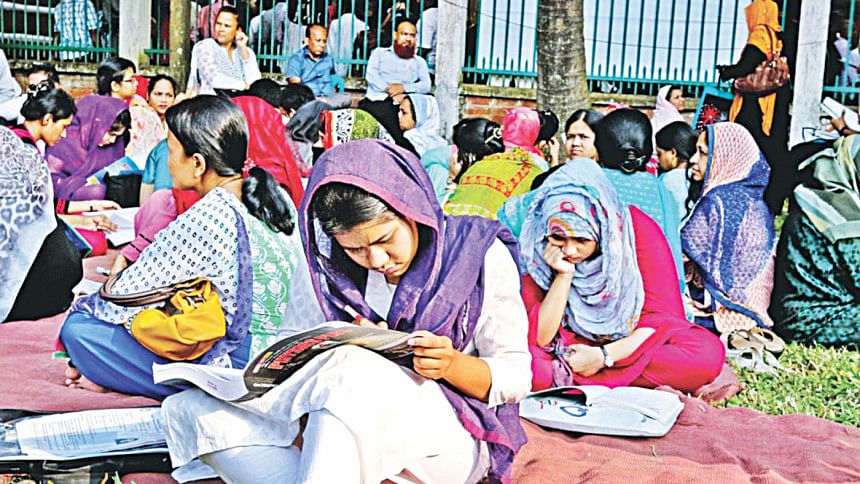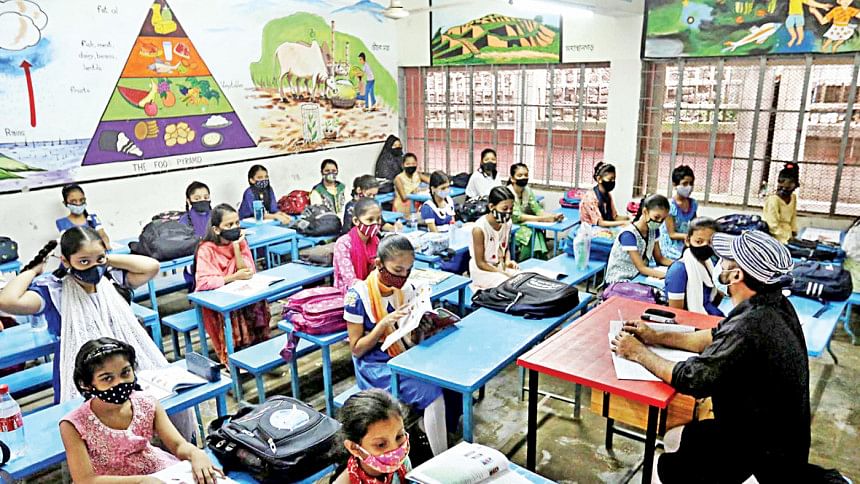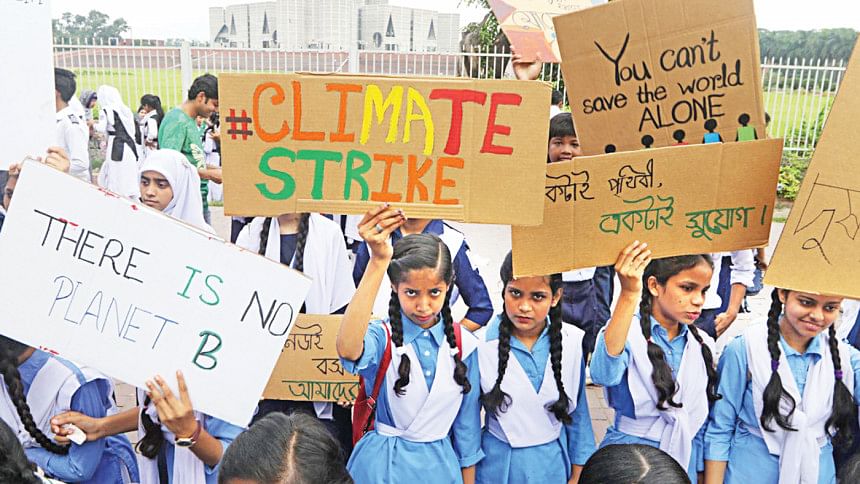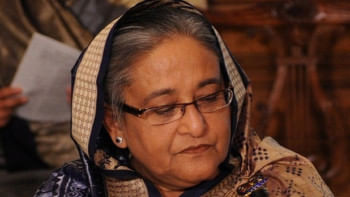Education and growth: Are we asking the right questions?

"The global climate fight will be won or lost in this crucial decade – on our watch… humanity has a choice: cooperate or perish. It is either a climate solidarity pact – or a collective suicide pact."
Economists and policymakers, influenced by economists, tend to look at education as a homogeneous and highly aggregated category. Growth is also defined and measured by change in the gross domestic product (GDP) of a country – another aggregated category. The relationship of education and economic growth is attempted to be gauged by linking change in the quantum of education and of GDP. This approach is misleading and has misguided policy and decision-makers concerned with priorities and plans both in education and national development.
Joseph Stiglitz, the Nobel prize-winning economist at Columbia University, wrote,"It's clear: we are living beyond our planet's limits. Unless we change something, the consequences will be dire. Should that something be our focus on economic growth?"
The international community (as in COP-27 at Sharm-el-Sheikh in November, 2022) has re-affirmed the goal of limiting global warming to two degrees Celsius rise (from the pre-industrial level of mid-19th century) and "net-zero" carbon emission by 2050 in order to keep the planet safe for human habitation. Stiglitz and others have argued that this goal can be achieved in a way that would enhance living standards; because the transition to a green economy could spur investment, employment, and prosperity. But it will take the alignment of major interest groups and building a supportive social compact in favour of sustainable production and consumption.
The single-minded pre-occupation with ever-rising GDP is clearly misguided. But without economic growth, billions of people will not have the chance to live with dignity; and remain without adequate food, shelter, education, clothing, and healthcare. As suggested above, the idea of growth needs to be broadened and modified to embrace elements of sustainable social and economic development and protection of the environment.
The content and quality of growth, who decides these and how, and how the benefits of growth are distributed are more important than the frequently invoked single number representing the aggregate growth rate. To get the balance and composition of growth right, it is reasonable to limit in many situations the pace of growth or even live with no growth. Many economists and politicians find this idea a taboo.
The shared responsibility of protecting the planet for humanity and other living species requires a global balancing with slower and even no-growth economies in countries which have already attained a high level of affluence. Since the Club of Rome discourse on "Limits to Growth" in 1972, this theme seems to have gone out of vogue.
Historian Arnold J Toynbee wrote, "Civilisations die from suicide, not by murder." Antonio Guterres, UN Secretary General, said at Sharm-el-Sheikh, "The global climate fight will be won or lost in this crucial decade – on our watch… humanity has a choice: cooperate or perish. It is either a climate solidarity pact – or a collective suicide pact."
Toynbee had also said, "The only real struggle in the history of the world… is between the vested interest and social justice." A combination of vested interests stands in the way of making hard choices about climate change actions.
The Human Development Report was first launched under the United Nations Development Programme (UNDP) auspices in 1990 by the Pakistani economist Mahbub ul Haq and Indian Nobel laureate Amartya Sen. The human development approach that forms the basic premise of the report takes a broader view of development incorporating economic prosperity, human well-being, freedom and justice, and protecting the natural environment.

The indicators that make up the human development index comprise life expectancy, adult literacy, access to the three levels of formal education, and average per capita income. These are regarded as the proxies for the conditions that enable people to exercise freedom of choice about their life. Economic growth, represented by per capita income, is seen as a means, along with others, to the end of human development.
Recognising the urgency of the planetary survival concern, the 2020 Human Development Report makes the point that immense human pressures on the planet have ushered in a new geological epoch, the Anthropocene, or the Age of Humans. A new index, the Planetary-Pressures Adjusted Human Development Index (PHDI), has been introduced to show a country's carbon dioxide emissions and material footprint.
Bangladesh ranked 129th among 191 countries in Human Development Index, as indicated in Human Development Report 2021-22 – an improvement from 133 out of 189 countries in the previous year. Increase in national income was the major reason behind Bangladesh's progress. Inequality, however, grew which is a challenge to sustaining well-rounded progress. Among its South Asian neighbours, the Maldives ranked 90th, Bhutan 127th, India 131st, Nepal 143rd, Pakistan 161st, and Afghanistan 180th.
A broader view of development, going beyond GDP, is reflected in the SDG agenda for 2030. SDG-4 goal on education includes 10 targets on education and skills of people from early childhood to youth and adults, which also are linked directly and indirectly to attaining the other 16 sustainable goals. Returning to the connection between education and economic growth, it should be underscored that the relevant question is how the many components of the education system function with efficiency and effectiveness to contribute to sustainable human development with a broad vision that embeds social, environmental, and economic objectives.

Education is of intrinsic value to individuals and society, besides its contribution to economic growth and productivity. It has a key role in realising human potential and building a society where human dignity and well-being flourishes. It prepares the new generation to learn and live by the rules of sustainable consumption and production. The contribution of education can be derived from effective functioning of its diverse subsectors and stages of education and the wide range of institutions and programmes in the public sector, private sector, and in hybrid state-non-state partnerships.
Education activities are carried out in formal, non-formal, and informal modes, and serve different groups of learners and diverse education and skill development objectives. An education system's performance depends on aligning all the diverse actors and actions towards obtaining better outcomes. The limitations of looking at education and its output as one aggregate category are obvious.
Taking the human development index as a reasonable measure of progress, Bangladesh is advancing at a moderate pace, but remains behind more than two-thirds of the countries of the world, as noted above. A poorly performing education system obstructs a broad-vision growth. A recent study exploring collaboration of state and non-state actors in education revealed what are described as structural and operational problems of education. Remedial measures have been proposed (Brac University/Brac Education Program, 2022). These suggestions, noted below, are relevant for enhancing the role of education in advancing sustainable human development.
1. Preparation of an overall education sector plan (beyond current partial sub-sectoral plans) to optimise public good functions of state/non-sate activities in education and to achieve SDG4 targets deserve high policy priority.
2. Longstanding structural and operational weaknesses in the education system should be addressed to remove barriers to effective education governance. Measures demanding attention include: i) One education and human resources ministry to provide unified lead; ii) A statutory permanent education commission; iii) A right to education law; iv) Moving towards largely autonomous district school education authorities; v) An autonomous higher education commission with necessary capacity and authority; vi) New thinking about teachers including a National Teaching Service Corps serving both state and non-state schools; and vii) Implementing a unified core curriculum for all schools. Many of these issues were anticipated in the 2010 Education Policy and flagged here only as headlines.
3. Ensuring adequacy of education resources and effective use to achieve results, which calls for a higher level of public resource commitment along with partnerships among diverse actors including households; models of partnerships for subsectors should focus on defined results rather than compliance to rules.

4. Well-designed collaboration and partnerships within a facilitative regulatory framework applied by the government that will serve the responsiveness, academic autonomy, public accountability, and stakeholder participation objectives better than direct government take-over or "nationalisation."
5. Drawing on the social capital– authorities in the education sector and at the political level need to find ways of drawing on the social capital embodied in non-state actors including civil society and NGOs.
Government leadership is essential for leveraging the political dynamics of education policy and decision-making toward building a social compact to achieve the public good aims of education. When our leaders talk about "Smart Bangladesh," a pre-condition to realising it is to nurture "smart politics" that halts the culture of impunity and lack of accountability.
References:
Brac University Institute of Educational Development/Brac Education Program (2022). Non-state Actors in Education: Exploring State/Non-state Collaboration in Bangladesh. A background paper for UNESCO/Global Education Monitoring Team. Non-state Actors in Education: Who Chooses, Who loses? UNESCO, 2022.
Stiglitz, Joseph E. (2019). "Is Growth Passé?" Project Syndicate Column, Dec 9, 2019.
Toynbee, Arnold J. (1965). A study of History, Abridgement of six volumes. New York: Dell.
UNDP (2022). Uncertain Times, Unsettled Lives: Shaping our future in a transforming world. Human Development Report 2021-22. New York: Oxford University Press.
UNDP (2020). The Next Frontier: Human Development and the Anthropocene. Human Development Report 2020. New York: Oxford University Press.

 For all latest news, follow The Daily Star's Google News channel.
For all latest news, follow The Daily Star's Google News channel. 



Comments